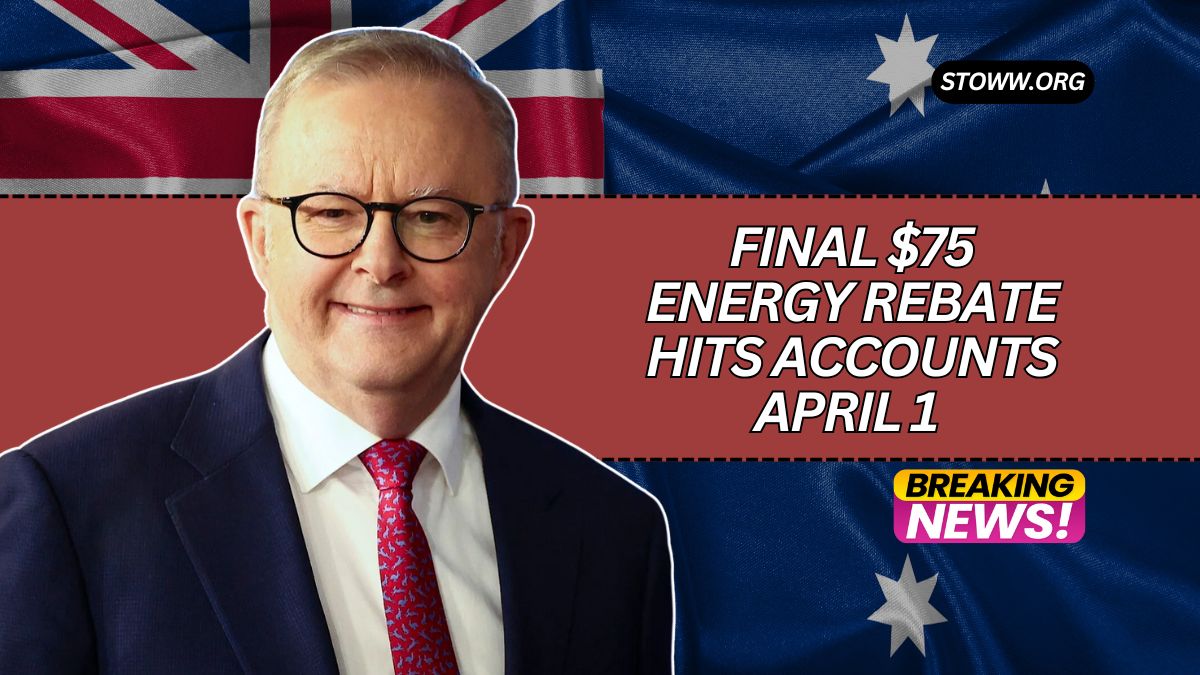On April 1, 2025, Australian households will receive the final $75 installment of the government’s $300 energy rebate, concluding a program aimed at alleviating electricity expenses over the past year.
As this financial assistance winds down, consumers are advised to brace for potential increases in their energy bills and explore strategies to manage rising costs effectively.
Overview of the $300 Energy Rebate Program
The Australian Government introduced the $300 energy rebate to support households facing escalating electricity prices. Distributed in four quarterly installments of $75 each, the payments were scheduled as follows:
| Installment | Amount | Date Applied |
|---|---|---|
| 1 | $75 | July 31, 2024 |
| 2 | $75 | October 1, 2024 |
| 3 | $75 | January 1, 2025 |
| 4 | $75 | April 1, 2025 |
This initiative aimed to mitigate the financial burden of rising energy costs for Australian households during the 2024–25 financial year.
Impending Electricity Price Increases
With the conclusion of the rebate program, households should anticipate higher electricity bills. The Australian Energy Regulator (AER) has announced draft determinations indicating potential increases in the Default Market Offer (DMO) starting July 1, 2025:
- New South Wales: Annual bills could rise by up to 8.9%, equating to an additional $159 for households on the Ausgrid network.
- South-East Queensland: Households may see a 5.8% increase, approximately $119 more per year.
- South Australia: An expected 5.1% hike could add about $114 to annual electricity expenses.
These adjustments reflect the maximum prices retailers can charge customers on default contracts, commonly known as ‘standing offers.’
Strategies to Mitigate Rising Energy Costs
In light of these forthcoming increases, consumers can adopt several measures to manage and potentially reduce their electricity expenses:
1. Compare and Switch Energy Plans
Shopping around for more competitive electricity plans can lead to significant savings. For instance, a typical household in Sydney could save up to $386 annually by switching from an average-priced plan to one of the cheapest available options.
2. Enhance Energy Efficiency
Investing in energy-efficient appliances and practices can substantially lower consumption. Simple actions like using LED lighting, optimizing heating and cooling systems, and unplugging devices when not in use contribute to reduced energy usage.
3. Utilize Government Resources
Government comparison websites, such as Energy Made Easy and Victorian Energy Compare, allow consumers to evaluate different electricity plans and identify cost-effective options tailored to their usage patterns.
4. Negotiate with Current Providers
Contacting existing energy retailers to inquire about better rates or available discounts can result in immediate bill reductions. Providers often have retention offers that are not publicly advertised.
5. Consider Renewable Energy Investments
Installing solar panels or participating in green energy programs can provide long-term savings and reduce dependence on traditional electricity sources.
As the final $75 installment of the government’s energy rebate is disbursed on April 1, 2025, Australian households should prepare for the cessation of this financial support and the anticipated rise in electricity prices.
Proactively implementing cost-saving measures, such as comparing energy plans, enhancing efficiency, and exploring renewable options, can help mitigate the impact of these increases and promote more sustainable energy consumption.
FAQs
What is the total amount of the energy rebate provided by the government?
The government provided a total energy rebate of $300, distributed in four quarterly installments of $75 each during the 2024–25 financial year.
When will the final installment of the energy rebate be applied to electricity bills?
The final $75 installment is scheduled to be applied to electricity bills on April 1, 2025.
How can households offset the anticipated increase in electricity prices after the rebate ends?
Households can offset rising electricity prices by comparing and switching to more affordable energy plans, improving energy efficiency at home, utilizing government comparison tools, negotiating with current providers, and considering investments in renewable energy solutions.
